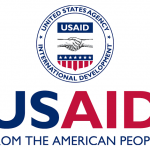In a show of solidarity and corporate responsibility, Nigerian banks have donated more than N500 million in cash and relief materials to victims of recent floods in Mokwa Local Government Area of Niger State. The disaster, described as one of the worst in the region in recent years, displaced families, destroyed livelihoods, and cut off entire communities.
The donation was officially presented on Saturday at the Niger State Government Liaison Office in Abuja by the Body of Banks’ Chief Executive Officers, led by the Group Managing Director of United Bank for Africa Plc, who also serves as the Chairman of the Body.
Describing the incident as tragic, the banking sector leaders said the humanitarian response was driven by both empathy and a strong sense of civic duty. Though the intervention came weeks after the floods, they assured that it stemmed from a long-term commitment to supporting vulnerable communities across Nigeria.
During the presentation, the banks delivered relief materials including bags of rice, beverages, vegetable oil, and mattresses. These items, they noted, are intended to bring immediate relief and restore dignity to the affected families. The donation also reflects the sector’s broader belief that a stable financial system is deeply linked to the well-being of communities it serves.
Top banking executives present at the event included the Managing Directors of Zenith Bank, Keystone Bank, TAJ Bank, and representatives from the Chartered Institute of Bankers of Nigeria (CIBN). Zenith Bank had earlier donated N300 million, while UBA contributed N200 million. Other banks also made separate donations and provided materials.
Receiving the items, Governor Mohammed Umaru Bago of Niger State commended the banking sector for what he called a “timely and compassionate intervention.” He explained that the flood was largely caused by climate-related rainfall and mismanaged water infrastructure, especially in a state that hosts four major hydropower dams and more than 90 water bodies.
The governor called for deeper collaboration between government and the private sector to tackle future climate-related disasters. He appealed to the banks to also invest in long-term resilience initiatives such as irrigation systems, food security programmes, and water management infrastructure that could mitigate flood risks and improve productivity.
As the state begins recovery efforts, the banks’ intervention not only brings hope to displaced families but also sets a powerful precedent for corporate response in times of environmental crisis.










